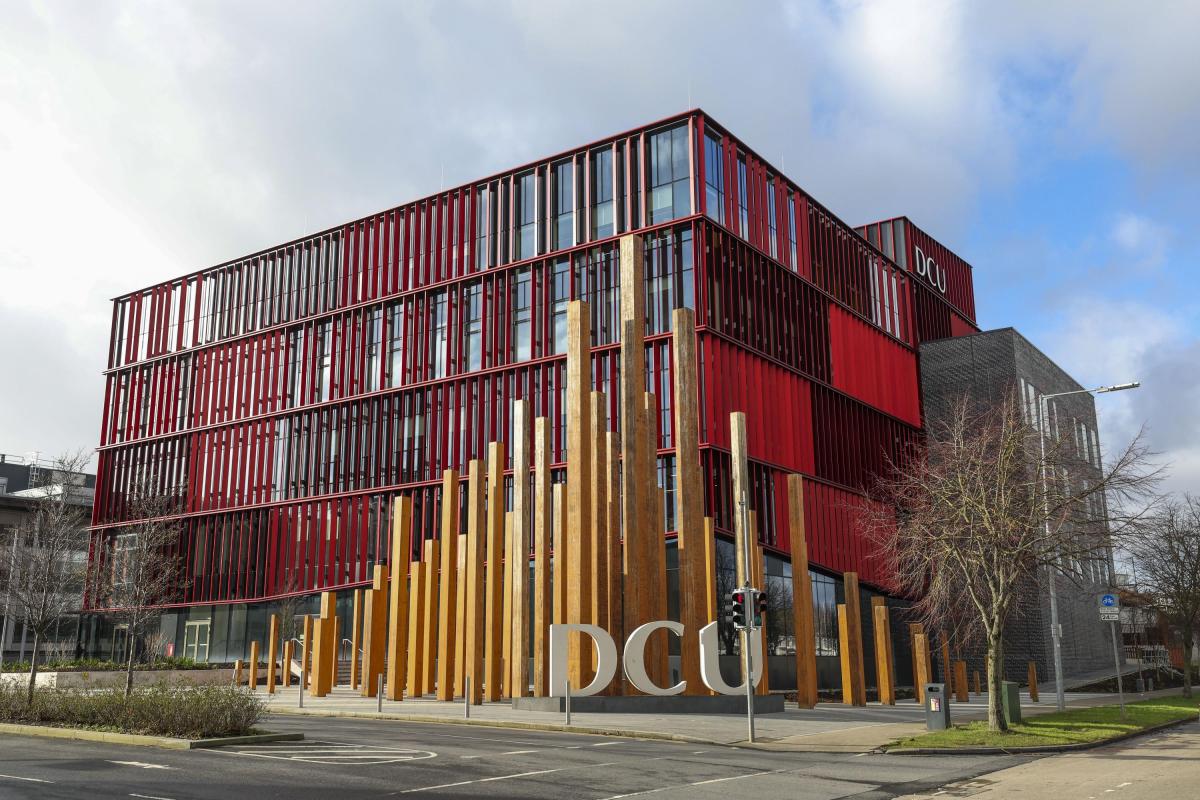

DCU Researchers secure over €1.6 million in EPA funding
The funding come’s as part of €14.5million allocated by the Environmental Protection Agency for projects across four headings: Addressing Climate Change Evidence Needs, Delivering a Healthy Environment, Facilitating a Green and Circular Economy, and Protecting and Restoring our Natural Environment. The funding will support 200 research staff across 10 organisations, including funding for approximately 50 new PhD and postgraduate students.
Dr Vijai Kumar Gupta’s project seeks to develop a sustainable biorefinery system for textile waste, specifically in Ireland. Dr. Gupta's research focuses on addressing key environmental and climate change challenges through the utilisation of renewable feedstocks and waste biomass for the sustainable production of biochemicals, biopolymers, biomaterials, and bioactive metabolites, and now the sustainable treatment of textile waste.
Dr Louise Fitzgerald’s JUSTLAND project will contribute to the design and implementation of just policy interventions in the Agriculture, Forestry, and Other Land Use (AFOLU) sector. There are clear and significant challenges facing Irish policy-making in terms of land use and land use change. These include knowledge gaps around changing patterns of land ownership; achieving and balancing competing policy aims, including socio- economic and environmental priorities; and ensuring fairness, equity and transparency within the sector.
Dr Louise Fiztgerald and Dr Patrick Bresnihan (Maynooth University) said
“Over the last number of years, it has become clear that land ownership and land use patterns have been evolving in response to shifting financial, regulatory and policy contexts. In particular, the increasing cost of land and use of land for large-scale, commercial developments carries adverse socio-economic impacts for communities across Ireland, particularly in rural areas. We are grateful for this funding from the EPA to bring a political ecological analysis to exploring these dynamics, to contribute to more just and sustainable approaches to Agriculture, Forestry and Other Land Use in Ireland.”
Dr Jimmy O’Keeffe is leading the FARM-NC project which applies the idea of natural capital to Irish farm land. Ireland faces numerous threats from climate change and environmental degradation, including biodiversity loss, falling water quality, and property damage due to extreme weather events. These issues are exacerbated by changing land use practices and the intensification of food production from policy and consumer demand. However, Ireland's natural resources can offer solutions. Properly managed land can provide large-scale Nature-based Solutions (NbS) to challenges including carbon sequestration, flood risk, biodiversity enhancement, and water quality. Natural Capital Accounting (NCA) identifies, measures, and tracks natural resource stocks vital for life.
NCA involves understanding the extent and condition of key environmental assets and quantifying the flow of ecosystem services. Developing a framework to collect and evaluate farm-scale data is critical for supporting ecosystem service benefits and providing landowners with benefits from their land's services. The project focuses on developing a transferable and adaptable natural capital evaluation framework, including systems for farm-level data collection and ecosystem flow measurement.
This project will investigate the risks posed by electronic waste (e-waste) in meeting Ireland’s climate and environmental goals. E-waste refers to discarded electronic devices and equipment that are no longer usable or have become obsolete. Given that Ireland exports most of its e-waste, the project’s research will extend beyond Ireland’s borders, considering the broader impact of Irish e-waste on recipient countries.
Dr Danny Marks and Dr Michael Breen said
"We have decided to focus on e-waste because it is a growing concern due to rapid technological advancements and increasing consumption rates. Factors such as planned obsolescence and shifting consumer preferences have worsened the volume of waste, with Ireland significantly reliant on exporting this waste. This will be the first project in Ireland which will track the waste and try to uncover the drivers behind this waste as well as track where Ireland's e-waste is headed. We will go to a couple of these recipient countries, such as in Africa and Asia, to see the impacts of the e-waste upon local communities and livelihoods there."
The project will shed light on how Ireland’s reliance on exporting e-waste affects communities lacking safe recycling infrastructure, leading to adverse health and environmental outcomes. It will use a political economy lens to identify the power dynamics and economic incentives that drive e-waste exports.
Additionally, Dr David O’Connor is key contributor to the Mobile Air Monitoring in Agricultural Settings led by Dr Eoin Magillicuddy of the Technical University of Dublin. Dr O’Connors work on air quality monitoring to date has been widely recognised.
Dr O’Connor is also due to speak at one of the upcoming Futurology events.
